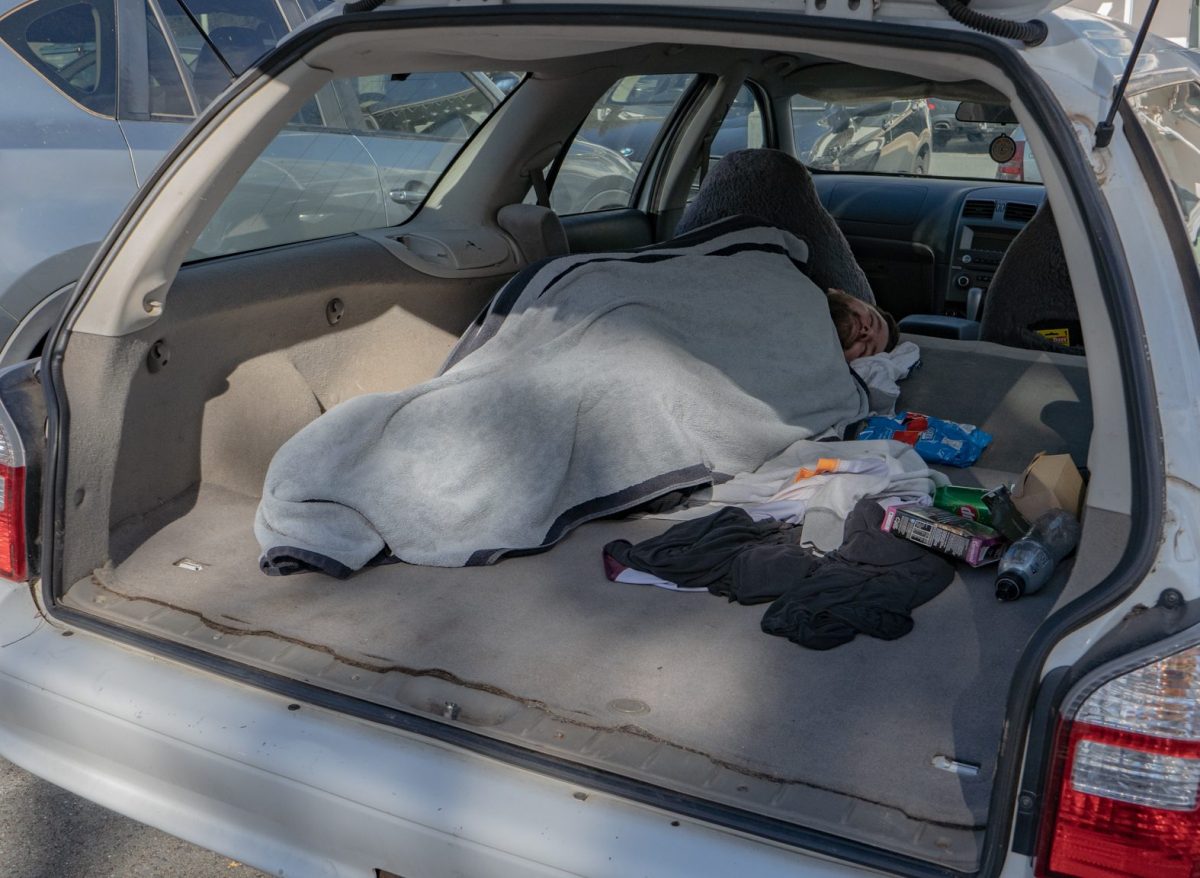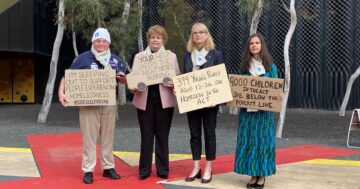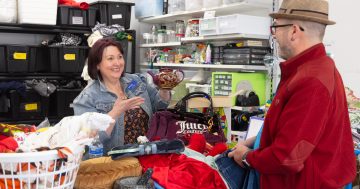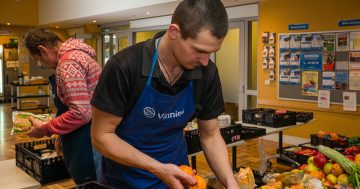
Vinnies says many people they see have jobs and are living out of their cars. Photo: Region.
Frontline homelessness services in the ACT are buckling under the demand from a growing range of people grappling with Canberra’s high rents and the surging cost of living.
The St Vincent de Paul Society Canberra/Goulburn (Vinnies) is leading the charge for the ACT Government to double funding for these services. It says it is seeing people who have never had to ask for help before.
CEO Lucy Hohnen said there had been an exponential increase in the calls for assistance through Vinnies’ emergency helpline in the past year.
“In December alone, we saw a 40 per cent increase in the number of calls to us for help,” she said.
“The majority of these requests are for accommodation support to prevent individuals and families becoming homeless, and for food.”
Vinnies was also seeing an increase in people in need of specialist homelessness services, including women and children fleeing violent homes, and its frontline teams and drop-in centres were absolutely stretched.
Ms Hohnen said the profile of people asking for help had changed significantly, with many more people trying to hold down a job and just managing to pay their mortgage or rent.
She said the financial demands of the new school year were also pushing people to phone the Vinnies’ crisis line.
“People who used to donate to us now are coming to us for assistance,” Ms Hohnen said. “We’re seeing a lot of new people and people who would never have imagined they would need the assistance of a charity, and that’s quite a shift.”
This week’s Productivity Commission report on housing and homelessness highlighted how entrenched the problem was.
Vinnies says the report shows that the current average rate of homelessness in the ACT is 39 people per 10,000, with no improvement from the 2016 rate of 40 per 10,000.
It says 2407 people experienced homelessness for at least a month in the previous year, and 1082 people in Canberra experienced persistent homelessness.
The report highlights that 11.5 per cent of clients return to homelessness after achieving housing, and critically, one in four people (686 out of 2781 clients) did not have their accommodation needs met in the ACT in this period.
The proportion of low-income families accessing community housing and spending a substantial portion of their income on rent has also increased.
The proportion of households in community housing who spend more than 30 per cent of their income on rent has increased from 4.6 per cent in 2022 to 10.2 per cent in 2023.
The number of people spending from a quarter to a third of their income on rent has quadrupled from 3.4 per cent in 2022 to 13.8 per cent in 2023.
Ms Hohnen said the surge in government support during the COVID-19 pandemic had tapered off, and its public housing renewal program was not keeping pace with demand.
“We know there’s a commitment to build more properties, which is fantastic, but we’re just not seeing them moving fast enough on that delivery, which means that we’re seeing this increase in demand for our services, which are not being funded,” she said.
“We are calling on the government to continue to add more homes to the public and community housing stock and to fast track the process of supply and allocation.”
Ms Hohnen said the sheer number of people on the public housing waitlist (3174 households) and the fact that those with the greatest need could experience a waiting period of up to 26 months showed that much more needs to be improved to address this surge in demand for help.
The report also noted more households living in overcrowded public and community housing units.
In the ACT, 4.7 per cent of households in public housing experience this, above the national average of 4.1 per cent, while 2.8 per cent in community housing experienced overcrowding, up from 0.3 per cent in 2022.
Ms Hohnen said there was also a lot of unseen homelessness as many people did not want to be identified.
“So people are surfing on couches, living in caravans, in tents, living in their cars – kids going to school, mum trying to hold down a job but actually unable to find anywhere that they can afford to live,” she said.
Ms Hohnen said many people were getting by without much of a buffer, and it did not take much for them to be tipped over the edge into homelessness.
She said Vinnies’ number one cohort was women and children escaping family violence, noting there had been a significant increase in recent times.
“Like many organisations in the community sector, we are struggling to find the capacity and resources to match the increased demand we face, so this additional support is urgent until the housing stock and other support is made available in the future,” Ms Hohnen said.
Vinnies will put their concerns and demands in a Budget submission and highlight the issue during the ACT election campaign.





















